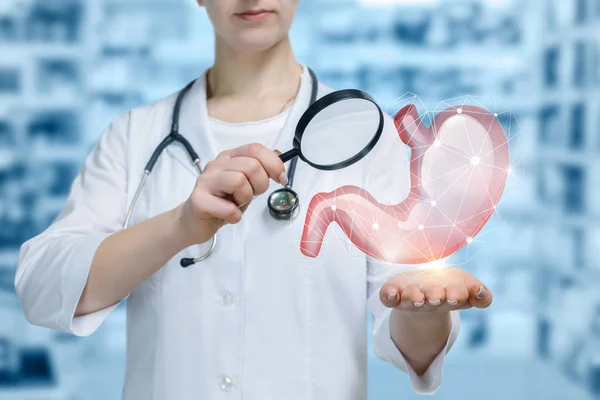Study Identifies Key Enzyme in Microbial Bilirubin Reduction, Affecting Human Health – In a recent study published in the journal Nature Microbiology, researchers identified and characterized a novel gut microbiota-derived enzyme called BilR, which plays a crucial role in the reduction of bilirubin to urobilinogen, thus maintaining bilirubin homeostasis in humans.
This discovery sheds new light on the role of the gut microbiome in bilirubin metabolism and highlights the significance of the gut-liver axis in human physiology.
The presence of this enzyme in almost all healthy adults and its decreased prevalence in individuals with inflammatory bowel disease (IBD) have been observed, indicating its importance in maintaining bilirubin balance.
The absence of this enzyme may contribute to conditions such as infant jaundice and gallstone formation.
This finding paves the way for further research into the gut microbiome’s role in various ailments related to bilirubin metabolism
About the study
The research team embarked on a quest to identify the elusive enzyme responsible for transforming bilirubin into its excretable form, urobilinogen.
Their meticulous efforts yielded nine bacterial strains with this remarkable ability, three of which were previously unknown bilirubin manipulators. By meticulously comparing the genomes of these “bilirubin reducers” with their non-reducing counterparts, they zeroed in on a promising candidate – BilR.
This enzyme, nestled within the operons of some bacterial genomes, stood out for its sequence homology to a known carbon-carbon double bond reducer. Subsequent experiments, conducted in the humble laboratory workhorse E. coli, confirmed BilR’s prowess in converting bilirubin to urobilinogen. This crucial step effectively reduces serum bilirubin levels, safeguarding human health.
But BilR’s story doesn’t end there. The researchers delved deeper, uncovering fascinating variations in its genetic makeup across different species. Some strains boasted a full-fledged BilR with additional domains hinting at its role in electron transfer, while others sported a more minimalistic version. This intriguing diversity suggests that bilirubin reduction might be strain-specific, opening doors for further exploration into the intricate tapestry of the gut microbiome.
The study’s reach extends beyond the confines of the laboratory. Analyzing human gut metagenomes revealed a striking correlation – BilR’s absence often coincided with the vulnerable period for neonatal jaundice, while its presence was nearly ubiquitous in healthy adults. This finding underscores the enzyme’s vital role in maintaining bilirubin balance throughout life.
Furthermore, the researchers observed a significant drop in BilR’s presence in patients battling Crohn’s disease or ulcerative colitis. This link between microbial taxonomic changes in inflammatory bowel diseases and impaired bilirubin reduction paves the way for future investigations into the complex interplay between gut health and bilirubin metabolism.
What is bilirubin and why is it important for humans?
Bilirubin is a yellowish substance that forms after the breakdown of red blood cells and plays a crucial role in the body. It is an important metabolite of heme, a component of hemoglobin, and is involved in the digestion process. Bilirubin is excreted in bile and gives stool its characteristic brown color. Elevated levels of bilirubin in the blood can indicate health issues. It is important for humans because it is a key intermediate in the heme degradation pathway and is involved in the gut-liver axis, which is essential for nutrient absorption and waste secretion in the body.
The recent discovery of a gut microbiota-derived enzyme called BilR has shed new light on the role of the gut microbiome in bilirubin metabolism. This enzyme plays a crucial role in the reduction of bilirubin to urobilinogen, thus maintaining bilirubin homeostasis in humans. The presence of this enzyme in healthy adults and its decreased prevalence in individuals with inflammatory bowel disease highlights its significance in maintaining bilirubin balance.
How does the gut microbiome affect human health?
The gut microbiome, which consists of trillions of bacteria, fungi, and other microbes, plays a significant role in human health. It impacts various bodily functions, including digestion, immune system regulation, and even brain function. An imbalance of unhealthy and healthy microbes in the intestines may contribute to conditions such as weight gain, high blood sugar, high cholesterol, and gastrointestinal disorders.
The gut microbiome also influences the development of chronic diseases, including metabolic diseases, and has been linked to conditions such as inflammatory bowel disease, irritable bowel syndrome, obesity, type 2 diabetes, and atopy.
Additionally, the gut microbiome may affect brain health by producing brain chemicals and communicating with nerves that connect to the brain.
Therefore, maintaining a healthy gut microbiome through a balanced diet, probiotics, and limited antibiotic use is crucial for overall health and well-being.
ALSO READ: Early-onset heart failure significantly elevates the risk of all-cause mortality.








